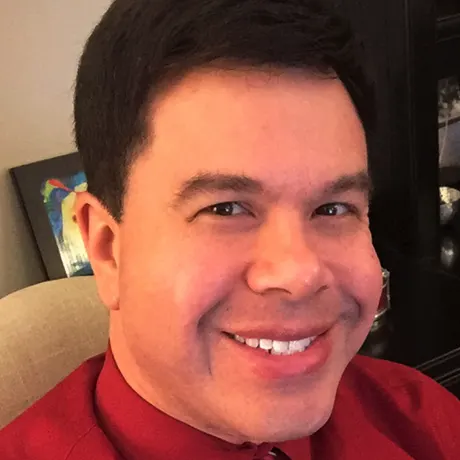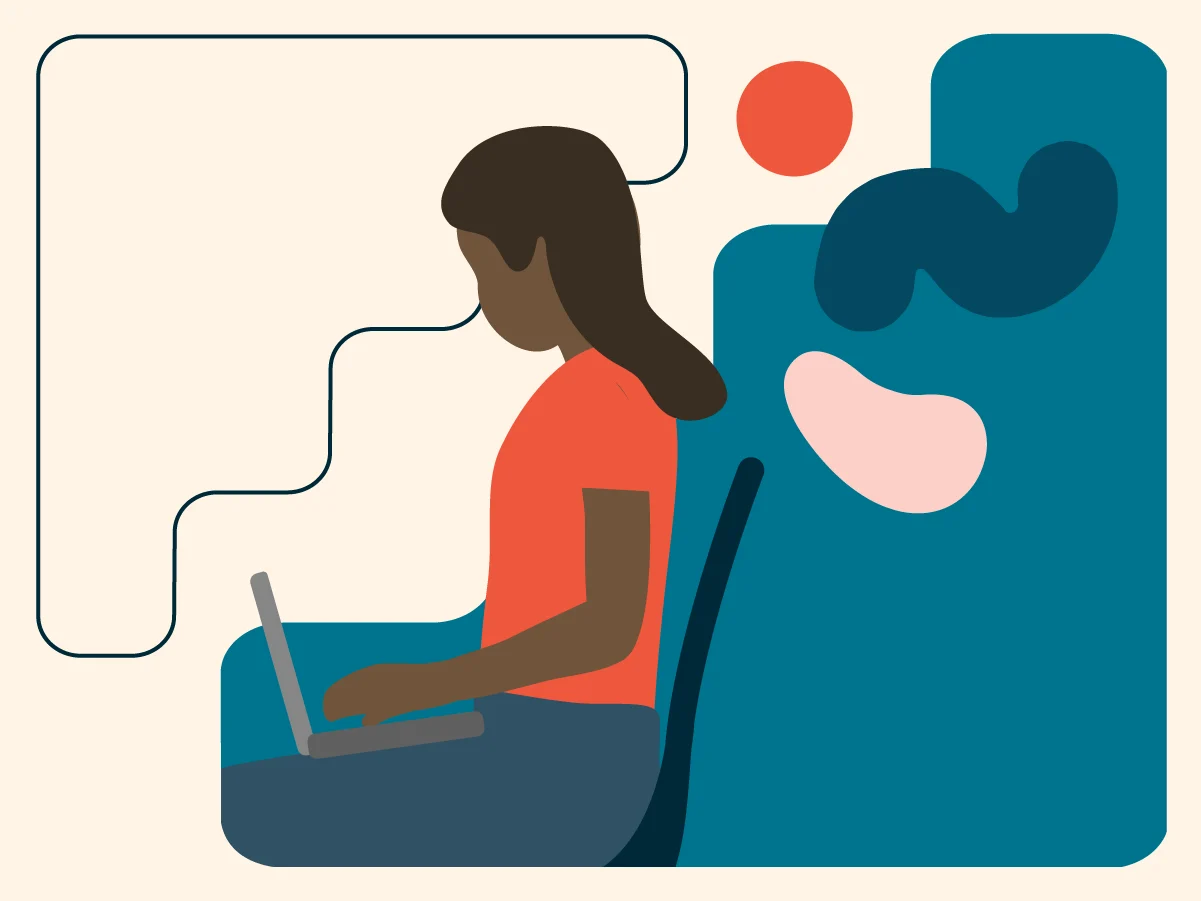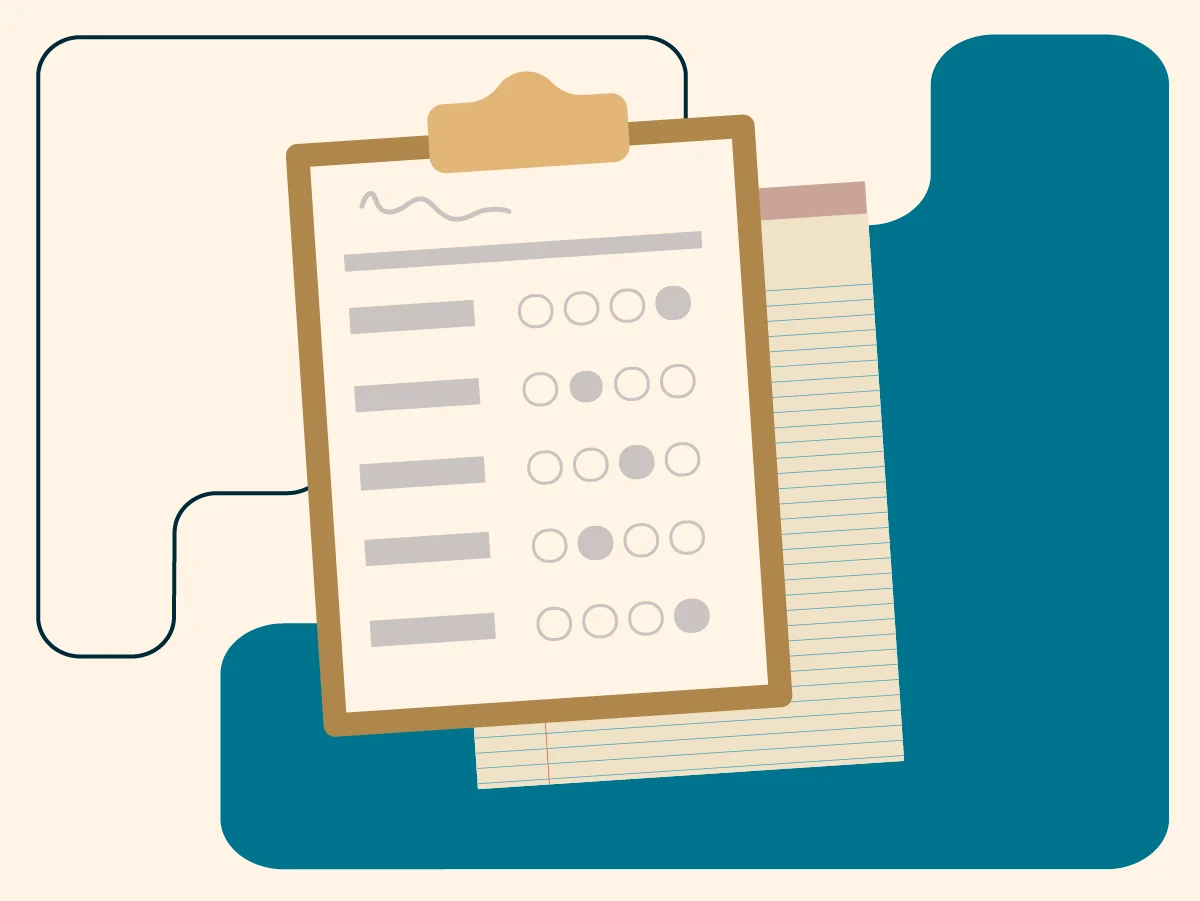What if I don’t really have ADHD?

Stay in the know
All our latest podcasts delivered right to your inbox.
Doubting your ADHD diagnosis? Do you still think you have ADHD even after your doctor said you don’t? Or maybe you got formally diagnosed but aren’t sure you really have ADHD?
Host Dr. Roberto Olivardia gives tips on how to think about whether you got a thorough evaluation — and if it may be time to get a second opinion. Get answers to common questions about ADHD misdiagnosis:
What do I do if my doctor told me I don’t have ADHD? [01:04]
What if I don’t think my ADHD diagnosis is accurate? [03:54]
Anything else I need to know about getting properly diagnosed? [07:18]
Key takeaway, next episode, and credits [07:57]
Related resources
Episode transcript
You’re listening to Season 2 of Understood Explains: ADHD Diagnosis in Adults.
Today’s episode answers the question “What if I don’t really have ADHD?”
We’re going to look at two sides of this question.
What if I think I have ADHD but was told by a doctor that I don’t have it?
And the flip side:
What if I got an ADHD diagnosis, but I’m not sure it’s accurate?
My name is Dr. Roberto Olivardia, and I’m a clinical psychologist with more than 20 years of experience evaluating people for things like ADHD. I’m also one of the millions of people who have been diagnosed with ADHD as an adult. I’ll be your host.
My goal here is to answer the most common questions about ADHD diagnosis. Along the way, you’ll learn a lot about ADHD in general.
We’re going to do this quickly — in the next 10 or so minutes. So, let’s get to it.
First, for people who were told they don’t have ADHD…
What do I do if my doctor told me I don’t have ADHD? [01:04]
I want you to think about whether you got a thorough evaluation.
To help with this, I recommend you go back and listen to a few episodes from earlier this season:
Episode 2 can help you think about whether you saw a qualified provider or if you might want to go see someone who has more training in how to diagnose ADHD in adults.
Episode 3 digs into the breadth and depth of the questions that a comprehensive evaluation should ask.
And Episode 4 is good to listen to if you got evaluated online and aren’t sure if it was legit or not.
Now, let’s say you did get a thorough evaluation. One reason some people don’t qualify for an ADHD diagnosis is if they only started struggling in certain areas pretty recently.
Many evaluators will disqualify an ADHD diagnosis for that reason alone, because the official diagnostic guidelines say there needs to be evidence of impairment or struggle before age 12.
But there are a lot of reasons why adults with ADHD may not say we struggled as kids.
Maybe you grew up in a highly structured environment or your parents did a lot to help make things easier for you.
Maybe you had a much less demanding schedule and didn’t need to use as much organization or time-management skills as you do now.
Maybe, as a kid, you could ace all the tests without doing the homework, but you couldn’t keep “winging it” when the demands got a lot harder in college or at work.
Or maybe as a kid you were a perfectionist — the complete opposite of a slacker. Perfectionism is surprisingly common among people with ADHD. It’s also not unusual for high-achieving kids to feel totally burned out by the time they become adults.
If any of these things sound like you but maybe didn’t get captured in your evaluation, you may want to consider reaching back out to the evaluator or getting a second opinion.
Another really important possibility to consider if you weren’t diagnosed with ADHD is that you could be struggling for other reasons. For example, maybe you’ve been under a lot of stress recently. (Um, hello, global pandemic…) And that stress could be causing a lot of symptoms that look like ADHD. Whatever the source of your struggles, your concerns are still valid. And there are still plenty of things you can do to help.
All of the non-medication treatments that I talked about in Episode 6 can help people who have ADHD and people who don’t have ADHD — things like developing coping strategies, leaning on social supports, using assistive technology, starting cognitive behavioral therapy. CBT can help everyone.
And if you didn’t qualify for an ADHD diagnosis because you’re struggling with something else, like a mood disorder, substance-abuse problem, or trauma, that is super important to find out so you can start getting the right treatment.
What if I don’t think my ADHD diagnosis is accurate? [03:54]
This is a very common question, and I want you to think about three possible reasons you’re doubting your diagnosis:
How thorough your evaluation was
How effective your ADHD treatment plan has been, and
How much you tend to doubt yourself in general
Let’s focus on any evaluation concerns first. I want you to look back at your evaluation, and use all the info we discussed in Episodes 2, 3, and 4 to help you think about whether you got a thorough evaluation by someone who has a lot of experience with ADHD.
In particular, I want you to think about how narrow or broad the questions were. Did the testing only seem to ask about ADHD? Or did the evaluator seem to consider whether you might have something in addition to ADHD — or something that can look a lot like ADHD, like a learning disability, anxiety, depression, or obsessive-compulsive disorder?
ADHD rarely travels alone, so chances are that another condition or diagnosis will be present alongside the ADHD. But this is important to tease out, since there can be overlapping symptoms. And sometimes people get an ADHD diagnosis when it’s not ADHD at all.
Next, I want you to think about whether you’re doubting your diagnosis because your ADHD treatment doesn’t seem to be helping. If you’re taking ADHD medication, go back and listen to Episode 5, where I talk a lot about the importance of partnering closely with your prescriber to find the right medication and dosage. This is definitely a trial-and-error process.
Keep in mind that, regardless of whether you’re treating your ADHD with or without medication, your progress can be gradual. It’s not like flipping a switch.
And if it turns out that you have another condition in addition to ADHD, then you may need to focus on treating that first and your ADHD second.
One other thing to consider here is that as an adult, you can choose what to do or not do if you're diagnosed with ADHD. No one else has to know. You can put your evaluation report in a drawer and wait to see how you feel about it. A diagnosis requires nothing of you unless you choose to do something with it.
Think of your diagnosis as a key that can unlock access to services and supports, if you want them. But you get to decide when or how or if you want to use that key.
And lastly, I want you to think about whether you tend to doubt yourself a lot in general. Many people with ADHD are very good at doubting ourselves. Go back and listen to Episode 7, which talks about ADHD and imposter syndrome.
ADHD, or any diagnosis for that matter, isn’t meant to be an excuse, but rather an understanding of what’s going on that then guides you to treatment or a plan to make things better.
Ideally, a diagnosis will lead to self-compassion. But let’s face it. Many people with ADHD can be really harsh on themselves about a lot of things.
So instead of dismissing everything with a quick “I’m an idiot,” try to make room for more accurate thoughts, like “I have ADHD, and that makes it hard to get things done on time. So I need certain supports to make sure I can finish what I need to finish.”
Bottom line: If you’re doubting the accuracy of your ADHD diagnosis, you can always get a second opinion. Talk with your doctor or therapist about why you’re concerned, and together you can come up with next steps to help you feel more confident about your treatment plan.
Anything else I need to know about getting properly diagnosed? [07:18]
There are two last things I want to mention.
First, getting an accurate diagnosis can not only help you — it can also help the people around you. Whether it’s ADHD and/or something else, getting the right treatment can help you be a better version of yourself, which can help in all of your relationships, and at home, and at work, etc.
Second, ADHD tends to run in families. The same is true for other mental health issues, like anxiety and depression. So the more you understand yourself, the more you can understand and support other members of your family.
Key takeaway, next episode, and credits [07:57]
OK, listeners, that’s it for Episode 8. The key takeaway I’m hoping sticks with you from this episode is that I applaud anyone who is trying to understand themselves better and get the help they need. You deserve to be happy and healthy — and with the right support, you can get there.
Thanks for listening. I hope you’ll join me for a special bonus episode, where you’ll hear from several folks about their experiences getting diagnosed with ADHD as an adult. I’ll share my story too.
You’ve been listening to Season 2 of Understood Explains from the Understood Podcast Network. If you want to learn more about the topics we covered today, check out the show notes for this episode. We include more resources, as well as links to anything we’ve mentioned in the episode.
One important note: I don’t prescribe ADHD medication and I don’t have any affiliation with pharmaceutical companies — and neither does Understood. This podcast is intended solely for informational purposes and is not a substitute for a professional diagnosis or for medical advice or treatment. Talk with your health care provider before making any medical decisions.
Understood Explains is produced by Julie Rawe and Cody Nelson, who also edited the show. Briana Berry is our production director. Our theme music was written by Justin D. Wright, who also mixes the show.
For the Understood Podcast Network, Laura Key is our editorial director, Scott Cocchiere is our creative director, and Seth Melnick is our executive producer.
Understood is a nonprofit organization dedicated to helping people who learn and think differently discover their potential and thrive. Learn more at understood.org/mission.
Host

Roberto Olivardia, PhD
is an expert in the treatment of ADHD, obsessive-compulsive disorder, and body dysmorphic disorder. He also focuses on issues facing students with learning disabilities.
Latest episodes
Tell us what interests you
Stay in the know
All our latest podcasts delivered right to your inbox.







